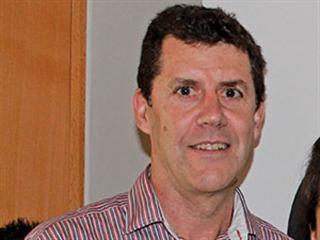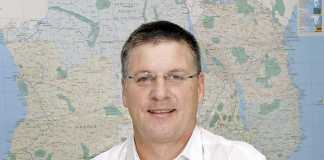
What is the New Generation Plantations (NGP) project?
NGP is a platform that includes WWF, companies and government. The project collects knowledge and good practices in plantation forestry to promote better plantation management – because well-designed and managed plantations can relieve the strain on the planet’s remaining natural forests. A New Generation Plantation is an ideal form of plantation that contributes to rural development, economic growth and poverty alleviation while maintaining ecosystem integrity. We believe that if sustainable management principles are applied, plantations can have positive social and environmental impacts.
What has NGP done so far?
Work has involved many case studies. These include a biodiversity case study on wetlands linked to Mondi plantations, a study from Brazil on the Sustainable Forest Mosaics initiative and a study in the UK on developing sustainable stump- harvesting guidelines. The focus is now shifting to social issues. Plantations will increasingly need to demonstrate their benefits, and the concept provides a conceptual framework and studies on how to do this and methods to distinguish good plantation practice from bad.
Can you give examples of good and bad plantations?
In Brazil, plantations are replacing degraded, overgrazed land and we now see interesting mosaics of monoculture and natural restoration. This is a positive outcome from an environmental point of view, but there are other places in the world where plantations are being managed extremely badly, and can only be described as ‘land grabbing’.
In Indonesia, nearly all plantation expansion is taking place at a direct cost to natural forest. There is a disturbing process of converting natural forest into monoculture plantation, which threatens people’s rights and livelihoods and is replacing viable ecosystems. We do not regard these as NGP practices. Local people with rights over local forests should be able to attract investment rather than be marginalised by investors who arrive to take advantage of their resources.
As populations and incomes grow, demand for wood is going to rise. How will this threat to natural forests be overcome?
Maintaining near-zero loss of natural forests will require forestry and farming practices that produce more with less – less water, land and pollution. That is a huge challenge in itself. On the other hand, we need new consumption patterns. Affluent regions need to reduce waste and over-consumption while poorer parts of the planet need to consume more resources, such as paper for hygiene, food packaging, and reading and writing. We are not anti-consumption so much as pro equitable consumption. The challenge is how we can have a future where all our needs are met without exceeding the ecological boundaries of the planet.
What is the future of wood supply?
Our modelling projects that global wood removals will triple from 3,4 million cubic metres in 2012 to 13 million cubic metres by 2050. So we have to find a way to produce three times as much wood as we are currently producing. One of the big drivers of that expansion in wood supply is bio-energy.
Is the extra wood going to come from natural forests or plantations?
We see a massive expansion both in the area of forests that need to be logged and of plantations. There will be a trade-off. For example, if we strictly limit areas dedicated to plantations, we would have to log three times as many forests. The bottom line is that we need more plantations and will probably need to log more forests as well. Using our models, the projected global expansion in forestry plantations between 2010 and 2050 is 252 million hectares. Plantations produce more timber per hectare than natural forests, so if we have to intensify production, plantations are a big part of that solution.
Do you consider wood products good or bad?
Wood is a good product. Items made from it tend to have a lower carbon footprint than those made from concrete, oil-based plastic, or steel. Wood can have up to seven or eight lives before it’s burnt for fuel or ends up on landfill. So it has many natural qualities that make it a relatively low- footprint product, provided it comes from sustainable forests. Plantations do, however, remain controversial and in many parts of the world, we are seeing strong protests against plantations. One of the challenges of the NGP project is to bust some of the myths that all plantations are bad and communicate what good plantation practice looks like.
What are the broader challenges in implementing the NGP vision in forests around the world?
When it comes to deciding on land use, it’s difficult to always reconcile national and international interests (food, energy and water security, biodiversity conservation, and reducing greenhouse gas emissions) with local rights and aspirations (local people’s rights to self-determination and local preferences to convert or save forests). We see much debate about inclusivity, transparency, negotiation, mediation, compensation and due process. As WWF, we have to admit that we cannot always achieve win/win outcomes. An example is that when we create protected areas, not everyone is a winner. There are often losers in the creation of protected areas.
You have brought the NGP platform to Africa. What are your aspirations?
The NGP platform is only getting to Africa now and our vision is that future plantations will look something like the NGP concept. We use experience from existing plantations in Africa and other parts of the world, as well as dialogue and knowledge-sharing between stakeholders, to inform future plantation development in Africa. As the process unfolds, it will become clearer what participants want the focus areas to be.
For more information, visit www.newgenerationplantations.com.
Email Brent Corcoran at [email protected] or visit www.wwf.org.za













